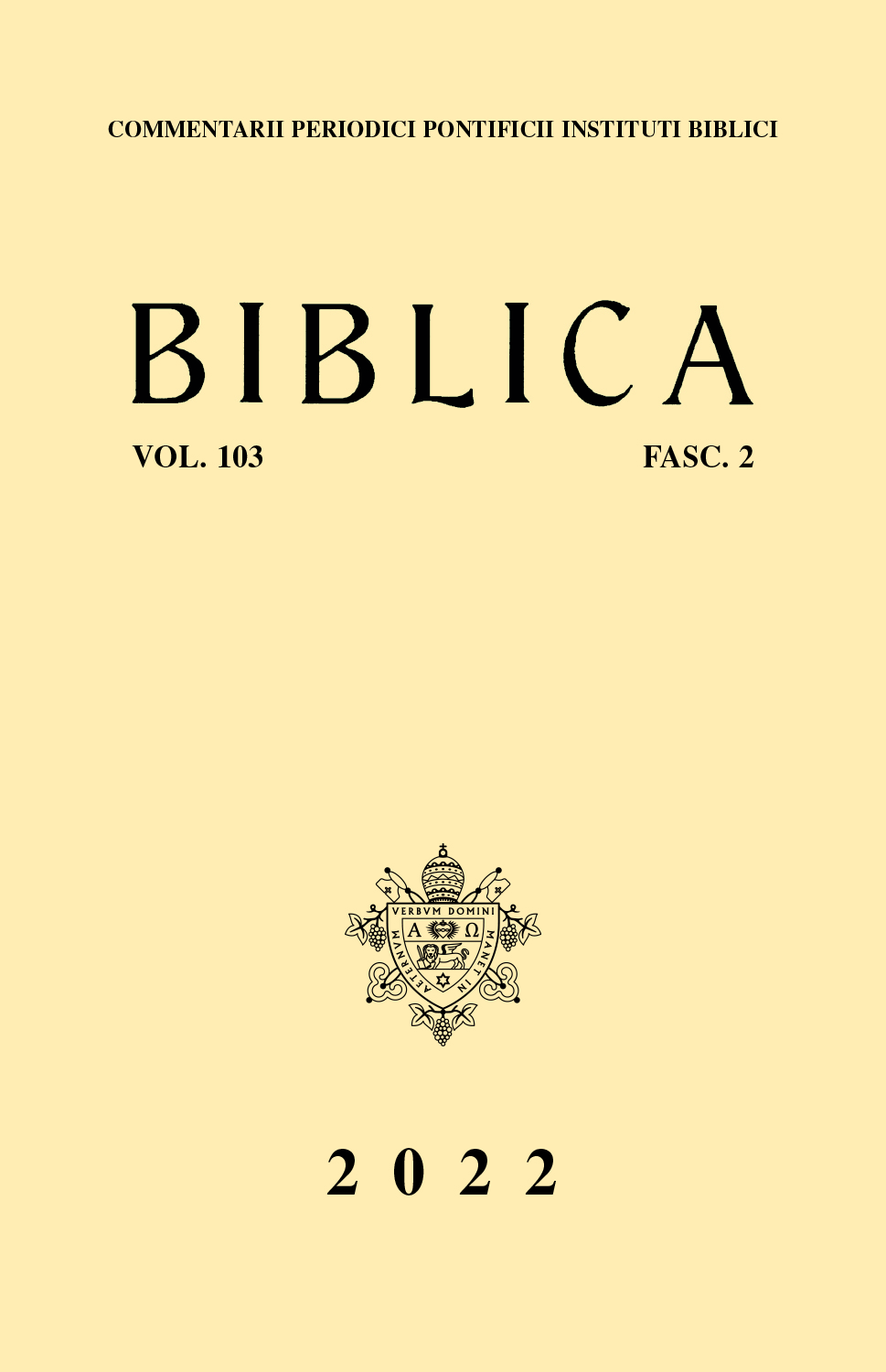next article in this issue  |

Preview first page |
Document Details : Title: 'Bethany beyond the Jordan' in Text, Tradition, and Historical Geography Author(s): HUTTON, Jeremy M. Journal: Biblica Volume: 89 Issue: 3 Date: 2008 Pages: 305-328 DOI: 10.2143/BIB.89.3.3188954 Abstract : Origen selected ἐν Βηθαβαρᾷ in John 1,28 as the superior reading in his Comm. Jo., an assessment challenged by modern critics. Although the text-critical data seem to indicate ἐν Βηθανίᾳ as the preferable reading, this claim may be questioned on literary and redactional grounds. Those same observations provide evidence for intentional literary commemoration of John’s ministry at the Jordan. Origen’s gloss of Βηθαβαρᾷ as 'House of Preparation' (οἶκος κατασκευῆς) leads to an examination of Mk 1,2-3, and its lexical divergence from LXX Mal 3,1.22-23 [=MT vv. 23-24]; Isa 40,3. Mark anomalously uses the verb κατασκευάζω, the nominal counterpart of which (κατασκευῆ) renders Heb. עבדה 'work, preparation' (LXXAB Exod 35,24), which is graphically similar to בית עברה. When combined with historical-geographical study of the area surrounding Jericho, these data allow us to trace the process of textual and traditional development whereby the toponym בית הערבה (Josh 15,6.61; 18,22), preserved at the modern Ḫ. 'Ēn el-Ġarabe, served as the toponymic antecedent of both Βηθαβαρᾷ and Beth Barah (Judg 7,24). This process of development provides additional defense for the traditional localization of John’s ministry in the southern Jordan River Valley near the el-Maġtas and Ḥaǧla fords. |
|


